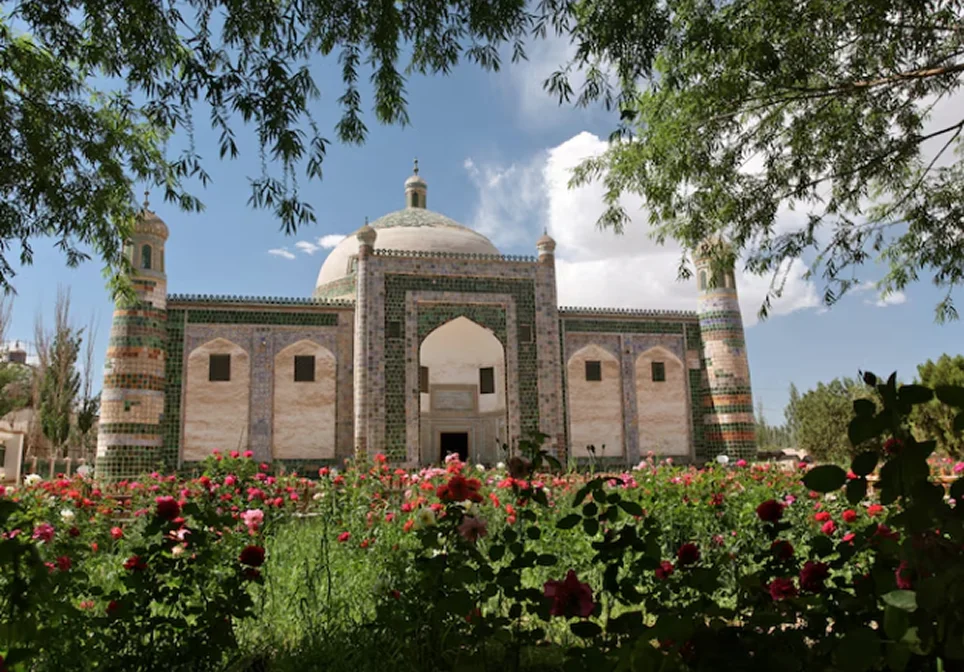COP28 UAE
A Milestone in Green Sheikh Academy’s Journey
Our Contribution Highlight
Islamic Faith as an Ethical
Foundation for Climate Action
The Green Sheikh Academy took center stage at the Faith Pavilion with an insightful fireside chat, illuminating how Islamic teachings provide a robust ethical framework for addressing the climate crisis.
Key Principles
Through our fireside chat at the Faith Pavilion, we spotlighted transformative Islamic teachings as vital climate solutions:
Prohibition of Harm
La Darar
Modertation
Wasatiyyah
Earth Stewardship
Khilafah
Real-Life Initiatives
To inspire faith-based action, promote community awareness, and support environmental sustainability, such as:
Real-Life Initiatives
To inspire faith-based action, promote community awareness, and support environmental sustainability, such as:

1- Green Mosques

2- water conservation practices

3- zakat-based environmental projects
Empowering Message
Our message emphasized that Islamic values not only inspire personal accountability but also galvanize communities toward global cooperation, resilience, and sustainable innovation, setting a powerful example for faith-based climate action.
Our Impactful Side Events
Indigenous-Led Solutions for
Nature and Climate
The Green Sheikh Academy proudly elevated the voices of Indigenous Peoples, showcasing their vital role in climate action through its dynamic participation in the side event.
Amplifying Indigenous Voices
At COP28 in Dubai, the Green Sheikh Academy took a leading role in amplifying Indigenous perspectives by co-hosting the transformative side event “Indigenous Peoples’ Right-based, Bottom-up, and Collaborative Solutions for Nature and Climate.”
Event participants
This inspiring gathering united a diverse group of grassroots leaders and changemakers from Brazil, Cameroon, Nepal, Mexico, Malaysia, and the Philippines—many recognized as Equator Prize winners for their groundbreaking climate innovations. Key participants included:
Isabel & Carl Gakran
Instituto Zág, Brazil
Ernestine Leikeki
Cameroon Gender and Environment Watch
Norbu Lama
Tergar Charity, Nepal
Celine Lim
Instituto Zág, Brazil
Opening Message of Unity and Faith
As Master of Ceremonies, Sheikh Abdulaziz bin Ali Al Nuaimi—the Green Sheikh—opened the event with a message of unity, faith, and environmental responsibility, representing the UAE’s spirit of inclusion and commitment as COP28 host.
Opening Message
of Unity and Faith
As Master of Ceremonies, Sheikh Abdulaziz bin Ali Al Nuaimi—the Green Sheikh—opened the event with a message of unity, faith, and environmental responsibility, representing the UAE’s spirit of inclusion and commitment as COP28 host.
Challenges Faced by Indigenous Communities
Speakers shared powerful stories of defending ancestral lands, preserving biodiversity, and navigating systemic challenges—such as:
Land
Grabbing
Lack
of Funding
political
marginalization
Threats to
Cultural Survival
Despite these hardships, they offered inspiring, place-based solutions rooted in:
Indigenous
Science
Community
Empowerment
Intergenerational
Wisdom
Intergenerational
Wisdom
Our Mission
The Green Sheikh Academy remains steadfast in its mission to bridge divides, elevate marginalized perspectives, and champion authentic, community-driven climate solutions. This COP28 event reaffirmed our core belief: a sustainable future is only possible by centering the leadership, rights, and resilience of Indigenous Peoples at its heart.
Our Side Event Spotlight
Strengthening Environmental
Journalism in the Arab World
Arab countries demonstrated growing commitment to climate action, underscoring the need for stronger environmental journalism in the MENA region.

1- Climate Commitment vs. Communication Gaps
Arab nations demonstrated ambitious sustainability efforts at COP28, but a significant gap persists in how environmental issues are communicated across the region. Effective storytelling is crucial to bridge this divide.
2- Media Challenges in the MENA Region
Environmental journalism often lacks depth and critical insight. Media tends to focus on government-led projects, overlooking grassroots voices and investigative stories—missing vital perspectives on local climate impacts.
3- Bridging the Awareness Gap
Many prioritize visible issues like water pollution over long-term threats. Highlighting real challenges—such as droughts in North Africa or shrinking groundwater in Palestine—urges collaboration between journalists, scientists, and civil society for impactful, relatable reporting.
4- Empowering the Public Through Media
An informed and engaged public is essential. Through storytelling, interactive media, and forums, we can build a shared narrative of responsibility and resilience.
1- Climate Commitment vs.
Communication Gaps
Arab nations demonstrated ambitious sustainability efforts at COP28, but a significant gap persists in how environmental issues are communicated across the region. Effective storytelling is crucial to bridge this divide.
2- Media Challenges in the
MENA Region
Environmental journalism often lacks depth and critical insight. Media tends to focus on government-led projects, overlooking grassroots voices and investigative stories—missing vital perspectives on local climate impacts.
3- Bridging the Awareness Gap
Many prioritize visible issues like water pollution over long-term threats. Highlighting real challenges—such as droughts in North Africa or shrinking groundwater in Palestine—urges collaboration between journalists, scientists, and civil society for impactful, relatable reporting.
4- Empowering the Public
Through Media
An informed and engaged public is essential. Through storytelling, interactive media, and forums, we can build a shared narrative of responsibility and resilience.
Stay Informed & Connected
Subscribe to our newsletter for the latest updates on our programs, events, and ways you can get involved. Stay connected to a global movement towards sustainability and receive exclusive content directly in your inbox.
